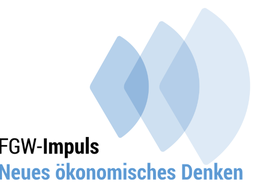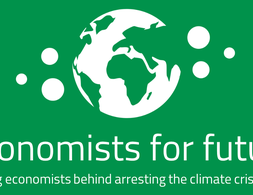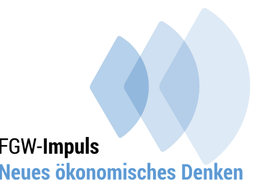1190 Ergebnisse
An essay of the writing workshop on contemporary issues in the field of Nigerian economics: In Nigeria, it appears that there is nothing in the constitution, which excludes the participation of women in politics. Yet, when it comes to actual practice, there is extensive discrimination. The under-representation of women in political participation gained root due to the patriarchal practice inherent in our society, much of which were obvious from pre-colonial era till date.
In the history of the social sciences, few individuals have exerted as much influence as has Jeremy Bentham. His attempt to become “the Newton of morals” has left a marked impression upon the methodology and form of analysis that social sciences like economics and political science have chosen as modus operandi.
Ziel dieses Seminars ist, eine Einführung in die wissenschaftstheoretischen und methodischen Grundlagen der Sozial- und Wirtschaftswissenschaften zu bieten.
Capitalism is dissolving boundaries - not only in the sense of ever-expanding global trade flows, but also in the concrete everyday working lives of individuals. What implications does this have for our understanding of freedom, work and borders?
Das Seminar wirft einen historischen Blick auf Fragen ökonomischer Entwicklung und ökonomischer Theorie und verbindet eine Einführung in die Wirtschaftsgeschichte mit einer vergleichenden Diskussion unterschiedlicher ökonomischer Denkrichtungen und Theorien.
After completing the workshop in Post Keynesian Economics participants should be able to describe the main differences and similarities between PKE and other schools of thought.
"Thought provoking and fresh - this book challenges how we think about economics.”
Gillian Tett, Financial Times
For further information about recent publicity events and media coverage for Rethinking Capitalism please visit http://marianamazzucato.com/rethinking-capitalism/
Western capitalism is in crisis.
Bastard Keynesianismus in einer doktrinenbezogenen Darstellung des Stoffes Eckhard Hein Quelle van Treeck Till and Janina Urban Wirtschaft neu denken Blinde Flecken in der Lehrbuchökonomie iRights Media 2016 Das Buch kann hier bestellt werden http irights media de publikationen wirtschaft neu denken Rezensiertes Buch Felderer B Homburg S 2005 Makroökonomik …
Towards a post-work future: a necessary agenda to reconcile feminist & ecological concerns with work
In this essay the author outlines the basis for embracing a post-work agenda, rooted in an emancipatory potential from the domination of waged work, which could help answer both feminist and ecological concerns with work.
Gegenstand der Studie ist eine vergleichende Bestandsaufnahme des aktuellen Profils und der zukünftigen Entwicklungstendenzen in der deutschen und US-amerikanischen Volks- wirtschaftslehre (VWL). Hintergrund ist die Frage nach einem deutschen Sonderweg in der Ökonomie. Hierfür werden die derzeit tätigen VWL-Universitätsprofessor_innen in Deutschland und den USA im Hinblick auf ihre thematische und inhaltliche Ausrichtung sowie auf ihr akademisches und außeruniversitäres Wirkungsspektrum untersucht.
Brauchen wir angesichts der sich zuspitzenden Klimaproblematik neue ökonomische Denkweisen – jenseits der ‚unsichtbaren Hand des Marktes’ und des ‚rationalen’ Agenten – und wie sollten diese aussehen?
Michael Kalecki famously remarked “I have found out what economics is; it is the science of confusing stocks with flows”. Stock-Flow Consistent (SFC) models were developed precisely to address this kind of confusion. The basic intuition of SFC models is that the economy is built up as a set of intersecting balance sheets, where transactions between entities are called flows and the value of the assets/liabilities they hold are called stocks. Wages are a flow; bank deposits are a stock, and confusing the two directly is a category error. In this edition of the pluralist showcase I will first describe the logic of SFC models – which is worth exploring in depth – before discussing empirical calibration and applications of the models. Warning that there is a little more maths in this post than usual (i.e. some), but you should be able to skip those parts and still easily get the picture.
Dr. Katherine Trebeck explains some reasons why we should believe the future of the economy should be a wellbeing economy.
This course is intended to present some of the main ideas underlying the micro aspects of gender economics. The courses will tackle issues as fertility, marriage, women labor force participation, wage gap, gender inequality, violence against women and women empowerment within her household and within the society where she lives.
The goal of the course is to deepen students’ understanding of the Latin American development experience by viewing it through a gender lens.
This syllabus provides an overview of the content of the Philosophy of Economics course at the University of Wisconsin-Madison.
Economics has become a monolithic science, variously described as formalistic and autistic with neoclassical orthodoxy reigning supreme. So argue Dimitris Milonakis and Ben Fine in this new major work of critical recollection.
In China's Gilded Age, Yuen Yuen Ang maintains that all corruption is harmful, but not all types of corruption hurt growth. Ang unbundles corruption into four varieties: petty theft, grand theft, speed money, and access money.
In this book, the author critically examines a number of socialist proposals that have been put forward since the end of the Cold War. It is shown that although these proposals have many merits, their inability effectively to incorporate the benefits of information technology into their models has limited their ability to solve the problem of socialist construction. The final section of the book proposes an entirely new model of socialist development, based on a "needs profile" that makes it possible to convert the needs of large numbers of people into data that can be used as a guide for resource allocation. This analysis makes it possible to rethink and carefully specify the conditions necessary for the abolition of capital and consequently the requirements for socialist revolution and, ultimately, communist society.
How did Britain's economy become a bastion of inequality? In this landmark book, the author of The New Enclosure provides a forensic examination and sweeping critique of early-twenty-first-century capitalism. Brett Christophers styles this as 'rentier capitalism', in which ownership of key types of scarce assets--such as land, intellectual property, natural resources, or digital platforms--is all-important and dominated by a few unfathomably wealthy companies and individuals: rentiers.
Philosophy of Economics: A Contemporary Introduction is the first systematic textbook in the philosophy of economics introduces to the epistemological, metaphysical and ethical problems that arise in economics, and presents detailed discussions of the solutions that have been offered.
Noneconomists often think that economists' approach to race is almost exclusively one of laissez-faire. Racism, Liberalism, and Economics argues that economists' ideas are more complicated.
Welches Menschenbild für die ökonomische Bildung?
Nicht-egoistisches Verhalten und soziale Vergleiche in der Haushaltstheorie
Der erstarrte Blick Eine erkenntnistheoretische Kritik der Standardlehrbücher der Volkswirtschaftslehre Silja Graupe Quelle van Treeck Till and Janina Urban Wirtschaft neu denken Blinde Flecken in der Lehrbuchökonomie iRights Media 2016 Das Buch kann hier bestellt werden http irights media de publikationen wirtschaft neu denken Rezensierte Bücher Mankiw N G 2001 …
Es ist immer noch zweifelhaft, ob Ökonom*innen mit ihrem Instrumentarium die nächste Wirtschaftskrise vorhersagen können.
Als erster Grund ist dafür der nicht-systemische Status von Krisen in Mainstream-Theorien zu nennen. Zweifelsohne entwickeln empirisch arbeitende Makroökonomen Warn-Indikatoren für Finanzkrisen (Schularick und Taylor 2012), es gibt auch makroökonomsiche Modelle, die Krisendynamiken aufgreifen (Kumhof et al. 2015) und Debatten im Mainstream der VWL über den richtigen Umgang mit der Mathematik (Romer ABC).
In der Volkswirtschaftslehre (VWL) hat sich seit Mitte der 1970er Jahre mit der Neoklassik ein dominierendes theoretisches Paradigma etabliert, welches das ökonomische Denken im Wesentlichen bis heute prägt. Dieser Zustand, der insbesondere seit der Finanz- und Wirtschaftskrise 2008 nicht nur in der akademischen Fachwelt durchaus kontrovers diskutiert wird, hat sowohl weitreichende Auswirkungen auf die innerdisziplinären Machtverhältnisse (z. B. Einseitigkeit in Forschung und Lehre, hierarchische Strukturierung, geringe Beachtung sozial- wissenschaftlicher Forschung und interdisziplinärer Ansätze) als auch auf gesellschafts- und wirtschaftspolitische Entwicklungen (z. B. Ökonomisierung sozialer und politischer Bereiche, einseitige Einflussnahme durch Expertengremien und Think Tanks).
Manuel Schulz hat sich im Rahmen der Schreibwerkstatt "Varieties of Mainstream Economics?" kritisch mit dem normativen Selbstverständnis der Verhaltensökonomik auseinandergesetzt.
Feminist economics is a key component of the movement for pluralism in economics and one that has, to some extent, been acknowledged by the mainstream of the profession. It seeks to highlight issues which affect women because (it claims) they have not traditionally been recognised in a field dominated by men. On top of this, it seeks to carve out a space for women in the discipline, both for intrinsic reasons of fairness and diversity and because it means that women’s issues are more likely to be highlighted going forward.
Obwohl der Begriff „der Markt“ (in der Einzahl) andauernd – sowohl in der Theorie als auch in Alltagsdiskurse – mit einer großen Selbstverständlichkeit verwendet wird, hat er eine Geschichte, die fast 100 Jahre zurückgeht. Diese Begrifflichkeit wurde erstmals in der Österreichischen Schule der Nationalökonomie, und zwar von Ludwig Mises und Friedrich Hayek, und von Ordoliberalen wie Walter Eucken oder Wilhelm Röpke entwickelt.
Während die Pluralismus-Debatte in den Wirtschaftswissenschaften an Fahrt aufgenommen hat, gibt es seit einigen Jahren vermehrt Forschung zur Vielfalt der wirtschaftlichen bzw. wirtschaftspolitischen Berichterstattung. Die Studie „Qualifiziert für die Zukunft? Zur Pluralität der wirtschaftsjournalistischen Ausbildung in Deutschland“ hat diese Debatten erstmals zusammengeführt und die Frage aufgeworfen: Wie ökonomisch plural und reflexiv werden angehende Wirtschaftsjournalist:innen ausgebildet? Kernergebnis: Vor allem ökonomische Grundlagenveranstaltungen sind überwiegend orthodox ausgerichtet und prägen potenziell nicht nur Ökonomie-Studierende, sondern auch zukünftige Journalist:innen – und damit zentrale mediale „Gatekeeper“ für ökonomische Theorien und Perspektiven.
Als Weltwährung wird die abstrakte Idee einer weltweit gültigen Währung verstanden, mit der manche Ökonomen das derzeitige Weltwährungssystem ersetzt sehen wollen.
Das Dossier enthält eine Sammlung von empfehlenswerten YouTube-Kanälen und Youtube-Videos in den Themenbereichen Wirtschaftswissenschaften, Wirtschaft und Wirtschaftspolitik. Sie umfasst sowohl deutschsprachige als auch englischsprachige Angebote.
Wir nutzen Cookies. Klicke auf "Akzeptieren" um uns dabei zu helfen, Exploring Economics immer besser zu machen!


























